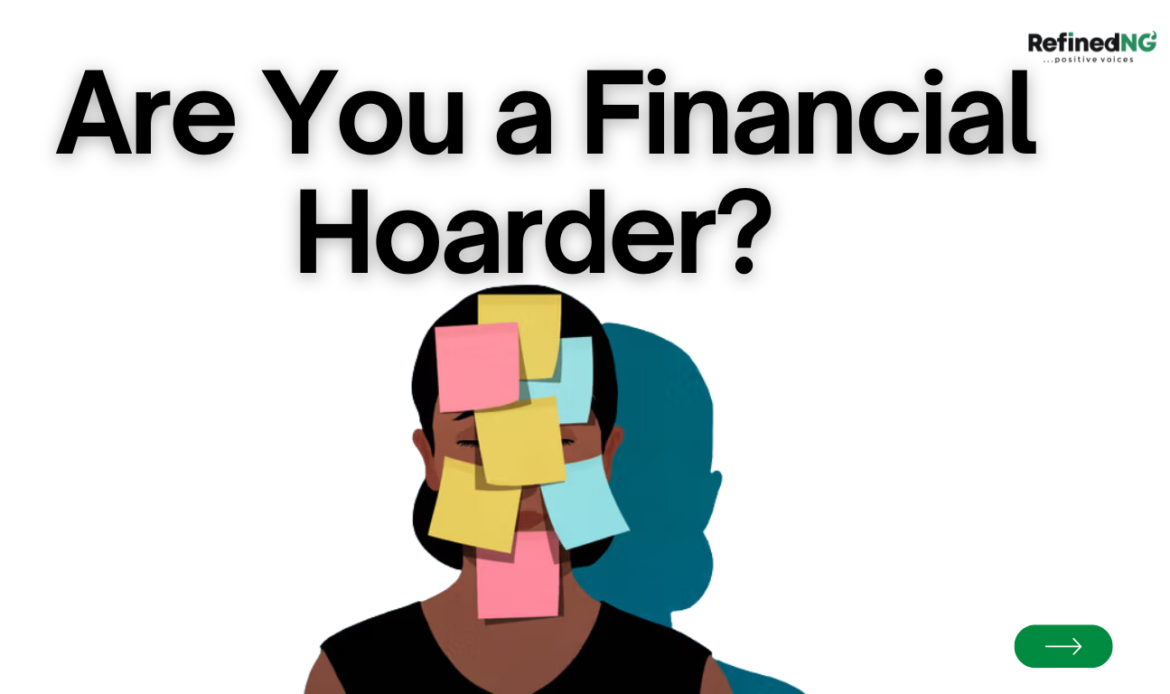
January is here; for many of us, it’s a time of new beginnings. But while you’re decluttering your home, workspace, or even your digital life, one area often gets overlooked—your finances. Yes, financial clutter is real, and just like an overcrowded closet, it can leave you feeling overwhelmed, disorganized, and stuck.
Let’s face it: the remnants of our financial past often linger for far too long: forgotten subscriptions, unused accounts, old debts, and paperwork piling up. If you feel like your finances are more chaotic than controlled, it’s time to take action. Financial hoarding doesn’t just take up space—it costs you money, time, and peace of mind.
So, are you holding onto old financial baggage? Don’t worry; you’re not alone, and the good news is that you can change. This article will help you identify whether you’re a financial hoarder and, more importantly, provide actionable steps to declutter your finances for a cleaner, more streamlined financial life.
Read: Smart Investment Strategies for Freelancers
What is Financial Hoarding?

Financial hoarding refers to the habit of accumulating unnecessary or outdated financial items, much like physical hoarding but in the context of money. It could mean holding on to multiple banks accounts you no longer use, saving years’ worth of paper bills “just in case,” or having so many subscriptions and services that you’ve lost track of them all.
Why does this happen? Often, it’s tied to fear, procrastination, or a lack of financial organization. People may fear they’ll “need it someday,” feel too overwhelmed to sort through it, or simply haven’t prioritized getting their finances in order. Over time, these habits lead to cluttered bank statements, confusing budgets, and missed financial opportunities.
But financial hoarding doesn’t just stay on paper or online. It seeps into your financial health, affecting your ability to save, invest, or plan for the future. For instance, you may find yourself paying for an old subscription you don’t use anymore or letting cash sit idly in low-interest accounts because you haven’t consolidated your savings. Worse, it can add unnecessary stress, making it harder to focus on your financial goals.
Recognizing financial hoarding is the first step. Once you’re aware, tackling the mess and transforming your financial habits becomes easier. This year, it’s time to stop holding on to what no longer serves you and make room for a clearer, more focused financial future.
How to Declutter Your Finances This Year

Step 1: Take Inventory of Your Financial Accounts
Start by listing every single financial account you have. This includes bank accounts, credit cards, investment accounts, and even digital wallets. If you’re unsure how many you have, go through old emails or review your financial app logins.
Step 2: Cancel Unused Subscriptions and Services
One of the easiest ways to declutter is to audit your recurring expenses. Take a close look at your subscriptions—streaming services, fitness apps, newsletters—and cancel those you no longer use or need. These seemingly small expenses can add up significantly over time.
Step 3: Consolidate Bank Accounts and Investments
If you’re juggling multiple accounts or investment platforms, consider consolidating them. Simplifying where your money is stored can reduce confusion and make it easier to manage your finances. For investments, ensure they align with your goals and eliminate redundant holdings.
Step 4: Set Up a Digital Filing System
Physical paperwork often adds to the clutter. Scan and digitize important financial documents like tax returns, receipts, and loan agreements. Then, organize them in clearly labeled folders on your computer or cloud storage.
Step 5: Automate Payments and Savings

Automation is your friend. Set up automatic bill payments to avoid late fees and automate savings contributions to ensure you consistently work toward your goals. It’s one less thing to think about every month.
Step 6: Revisit Your Financial Goals
Decluttering is not just about removing clutter; it’s about making space for what matters. Reassess your financial goals for the year. Whether you’re saving for a trip, building an emergency fund, or paying off debt, ensure your finances are structured to support these goals.
Read: LemFi Secures $53M Series B to Drive Expansion in Europe and Asia
Start Your Financial Decluttering Journey Today

Financial hoarding doesn’t just clutter your wallet—it can also weigh heavily on your peace of mind. Decluttering your finances is about more than organizing; it’s about freeing up mental and financial space to focus on what truly matters. You take the first steps toward financial clarity by streamlining your accounts, auditing your subscriptions, and consolidating investments. Add to that a solid filing system, clear financial goals, and automated processes, and you’ll find managing money becomes less stressful and more rewarding.
Remember, financial decluttering is not a one-time task but an ongoing habit. It’s about being intentional with your money, making smarter choices, and setting yourself up for long-term success. As you move forward, keep reviewing and refining your system to ensure it continues to serve your evolving financial goals.
Ready to take charge of your finances and start 2025 with clarity and confidence? Begin today, and watch how small, consistent efforts can lead to significant financial transformation.
For more financial insights and tips, visit Refined NG, where we help you build smarter financial habits for a stronger future.
